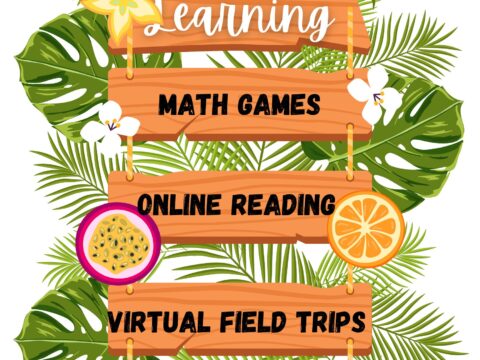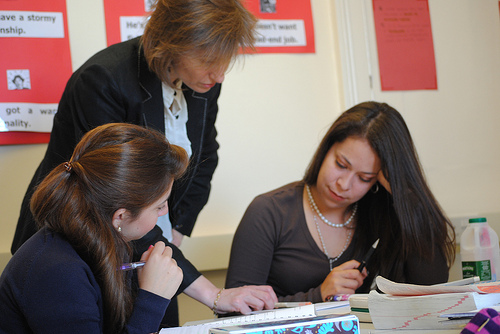 I love hearing a parent’s perspective on technology in their classrooms so I reached out to efriend, Joe Peters for his thoughts. Joe’s not only a parent, but a freelance journalist and tech enthusiast, so he knew exactly how to get his ideas across on the printed page. You won’t want to miss this article:
I love hearing a parent’s perspective on technology in their classrooms so I reached out to efriend, Joe Peters for his thoughts. Joe’s not only a parent, but a freelance journalist and tech enthusiast, so he knew exactly how to get his ideas across on the printed page. You won’t want to miss this article:
Parents are aware that classrooms nowadays are much different than when they went to school a generation ago. Students are no longer confined to their seats all day. Long instructional lectures by teachers are rare. And most of all, technology has invaded the classroom in the form of equipment, tools and video educational lessons.
In most cases, parents have welcomed this new leaning phenomenon known as EdTech. One survey published on EdTechReview states that 87% of the parents polled feel that the implementation of effective technology in schools is an important element in helping their children succeed. Of those parents voicing a positive opinion on EdTech, 64% said they were happy with their child’s school and thought it was doing a good of utilizing technology effectively.
Not all parents are convinced about the benefits of EdTech, however. They question the true effectiveness of EdTech and the long-range effect it has on their children.
Some of the most common questions parents have related to EdTech:
Is technology a priority in the school my child is attending and what are the technology goals for the school this year?
How will the school communicate with parents and transmit important information to them concerning EdTech progress?
What type of technology devices will the children be using?
How much screen time does my child utilize every day?
Are we raising a generation of students who cannot write in longhand or who cannot spell without spellcheck?
What access will my child have to technology tools at school?
What access will the students have to the Internet?
Is there a school policy on cyberbullying?
What is the school policy on children bringing cell phones and personal devices from home?
Does technology enhance my child’s educational experience over the pre-technology experience?
These are all valid questions. The overriding point for parents to be assured of is that technology is never a replacement for teachers. EdTech is a tool that extends a child’s natural ability and desire to learn. Technology tools help students to be more creative and to explore and experiment in ways they never could without the classroom computer and Internet access.
Bill Gates, the genius behind Microsoft, certainly stands behind the effort to bring modern technology into the classroom. His charitable foundation had donated billions of dollars-worth of computers and printers to classroom around the world to enable even the poorest and most backward countries to help their children keep up and compete in the world of the 21st century.
 There are some parents who equate EdTech with “new math” and Common Core, terms that send shudders through some segments of our population. The comparison is completely unfounded, of course. The new curriculum being taught under STEM and Common Core systems are programs designed to improve how lessons are taught. EdTech brings technology tools into the classroom to assist and improve the learning experience regardless of what learning plan is being used.
There are some parents who equate EdTech with “new math” and Common Core, terms that send shudders through some segments of our population. The comparison is completely unfounded, of course. The new curriculum being taught under STEM and Common Core systems are programs designed to improve how lessons are taught. EdTech brings technology tools into the classroom to assist and improve the learning experience regardless of what learning plan is being used.
Most professional educators agree that some broad areas of concern still exist when it comes to the rapid expansion of technology in education. But the consensus also agrees that this change is not all bad. For the most part, the change is good especially when it helps prepare students to be entrepreneurs, leaders and productive citizens of the future. As important is the need to develop creative thinkers and problem solvers who will be able to compete in the world economy.
Some parents are concerned that their tech-savvy children are advancing too fast. Children talk in a different language now, one steeped in shorthand social-media phrases.
Teachers and educators need to assure these parents that using technology in schools increases child’s digital literacy and skills necessary to prepare them for future careers.
The Global Digital Citizen Foundation, a non-profit organization dedicated to cultivating responsible, ethical, global citizens for a digital world, recently published the results of a survey that listed some crucial skills students need to acquire to compete in the world market, including problem solving, creativity, analytic thinking, collaboration, communication, but also ethics, action, and accountability.
The good news is that most of these necessary skills are byproducts of the use of technology tools in the classroom. When digital tools are purposefully and strategically integrated into school curricula, students acquire organized, multimedia knowledge.
Only digital tools can recreate and simulate real-world problems in realistic visual presentations. Book illustrations suddenly spring to life through audio and video presentations. EdTech can bring the entire world into the classroom allowing children to participate and interact with subject matter in ways not possible before. It fosters critical thinking and encourages students to “think outside the box.”
As long as the EdTech setup in the classroom is monitored by the teachers in a safe, controllable space, parents should really have no reservations about the advantage of having technology tools in the classroom process. In reality, we can’t turn the clock back. Technology runs our lives today, whether we like it or not.
Bio: Joe Peters is a Baltimore-based freelance writer and an ultimate tech enthusiast. When he is not working his magic as a marketing consultant, Joe enjoys spending time with his family, reading about latest tech gadgets and binge-watching his favorite TV shows. You can reach him @bmorepeters
Jacqui Murray has been teaching K-18 technology for 30 years. She is the editor/author of over a hundred tech ed resources including a K-12 technology curriculum, K-8 keyboard curriculum, K-8 Digital Citizenship curriculum. She is an adjunct professor in tech ed, Master Teacher, webmaster for four blogs, an Amazon Vine Voice, CSTA presentation reviewer, freelance journalist on tech ed topics, contributor to NEA Today, and author of the tech thrillers, To Hunt a Sub and Twenty-four Days. You can find her resources at Structured Learning.



































